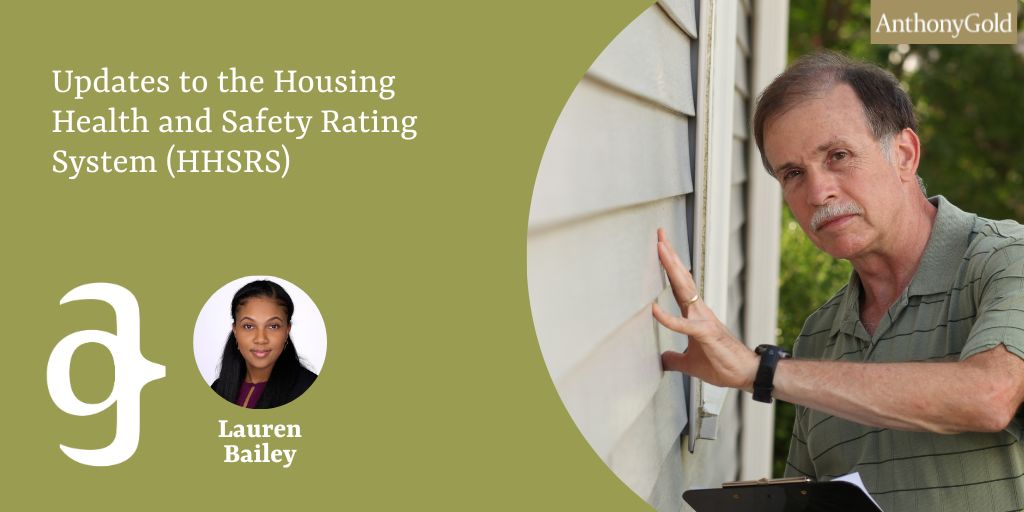Updates to the Housing Health and Safety Rating System (HHSRS)

A review of the Housing Health and Safety Rating System (“HHSRS”) was published by the government in September. This review, carried out by RH Environmental on behalf of the government looked at whether HHSRS needed to be updated.
The government say that the changes will make the system easier for landlords and tenants to understand. On the other hand critics like Professor David Ormandy have suggested that outcome of the review results in an oversimplification of the HHSRS and is likely to make it increasingly difficult for tenants to establish hazards in their homes and seek rectification of these hazards by their landlords.
What is the HHSRS?
The HHSRS is a system that is used to assess hazards in residential properties. It was introduced in 2006 and has not been updated since. The system currently covers 29 potential hazards. These hazards range from damp and mould growth to personal hygiene, sanitation and drainage, and fire. You can find the entire list of hazards here.
The HHSRS is a system for evaluating the potential risk of harm to a property to an occupier by rating the seriousness of any hazard identified. Each hazard is categorised using a numerical score, which falls into bands marked A-J (with A being the most dangerous). Hazards that fall within bands A-C are ‘category 1’ and those that fall within bands D-J are ‘category 2’.
HHSRS assessments are carried out by specially trained council officers or other experts. If the local council identifies a category 1 hazard, they must take enforcement action under section 6 of the Housing Act 2004. The council can issue an enforcement notice against your landlord, which will require your landlord to carry out all necessary repairs to fix the hazard. Your landlord may also be fined if they fail to comply with an enforcement notice.
The HHSRS is also part of the Decent Homes Standard, which registered providers of social housing must comply with. Under the Decent Homes Standard, a residential property should be completely free from category 1 hazards in order to be decent.
Revisions to the HHSRS
In 2018, the government launched a review to consider whether the HHSRS should be updated, and, if so, how. On 7 September 2023, the Department for Levelling Up, Housing & Communities (DLUHC) published the ‘Summary report: outcomes and net steps for the review of the Housing Health and Safety Rating System’ which outlined key proposed changes to the current HHSRS.
Key Proposed Changes to the HHSRS:
- Combining some of the hazards to reduce the total number from 29 to 21.
- Changing the current banding system by adding a third category. The categories will be colour coded so that a “traffic-light” system can be used.
- Baselines (minimum standards) will be published to aid initial assessments. These will not replace the whole assessment.
- New statutory operating and enforcement guidance.
- Digital assessments are to be interlinked with existing databases and existing training techniques will be reviewed.
- Combining and reviewing the ‘Fire’ hazard with ‘Explosions in Dwellings’ to help mitigate fire risks in tall buildings following the Grenfell Tower fire.
The proposed changes are intended to simplify the HHSRS assessment, making it easier to conduct and understand. However, some have raised concerns that these revisions create an oversimplification of the system. Some hazards may become harder to establish or easier for landlords to dispute if established. This may make it more difficult for local authorities to force landlords to carry out any repairs.
Next steps
To give legal effect to these revision the government will need to make new regulations. These regulations are not expected to be made until after the conclusion of the Decent Homes Standard review. A consultation on the Decent Homes Standard was held in 2022, but the government has not published any response yet.
* Disclaimer: The information on the Anthony Gold website is for general information only and reflects the position at the date of publication. It does not constitute legal advice and should not be treated as such. It is provided without any representations or warranties, express or implied.*

No comments